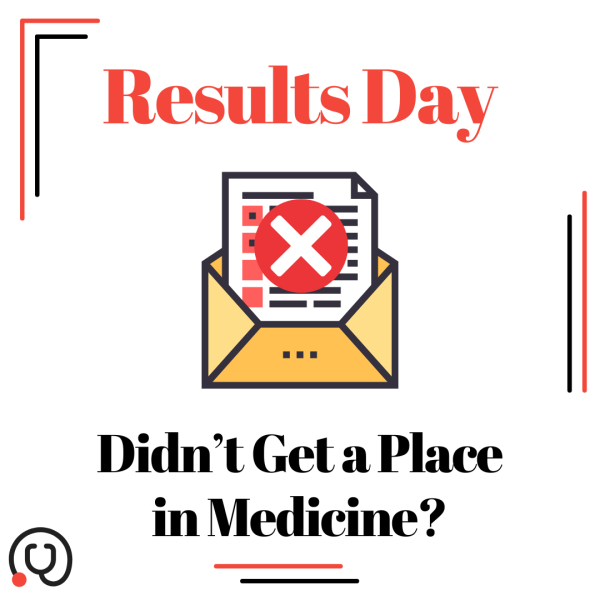Results Day: Didn’t Get a Place at Medical School? Here Are Your Options

1 month ago by Stan
Although results day can come with mixed emotions, it should be a day of celebration. Be proud of all your hard work! If you didn’t get into medicine it can feel like the end of the world, but there are still ways to get into your dream course. In this blog we will discuss your options.
If you got the grades for medicine (AAA) but did not secure a place
Apply through clearing
Clearing is the process by which universities fill up spare places in their courses. This can be intentional, where places are left for clearing (to advantage students who have achieved better grades than their predicted and now have the required grades to enter onto the course), or unintentional because the course is undersubscribed. Note that many universities do not have clearing places for medicine as there is such high demand for the course.
Take a gap year
Taking a gap year and applying to medicine for next year’s entry can be a good option, allowing you to reapply without having to complete another degree. It’s a great opportunity to develop as a person, learn new skills, gain more volunteering or work experience, travel, and even seek paid employment. These opportunities will help with your personal statement and interview. To reapply you will have to sit the UCAT this year, but don’t panic: it is not too late to start and you will have so much more time to prepare than when you were in year 13. Note that the last date to book a UCAT exam slot is September 19 and you must sit it by September 26.
If you did not get the required grades for medicine
If you did not achieve the required grades for medicine (or you achieved the required grades but the previously described options are not possible), there are a few options available to you:
Apply through clearing or accept your 5th choice on UCAS
If you met the offer conditions for your 5th choice on UCAS then consider the option of completing that course and then applying for Graduate Entry Medicine (GEM). This is a much more competitive route than standard entry medicine however, with higher UCAT and/or GAMSAT scores required. There is also the option of going into clearing and applying for another degree. There are so many courses on clearing day it can make for a stressful experience deciding what and where to study. Don’t be afraid to contact universities and ask your teachers or UCAS advisors for help.
Resit some, or all, of your A levels
If you did not get the grades you were hoping for, it is possible to resit some, or all, of your A levels. This is a good option if you don’t want to do another degree for several years and apply for graduate entry medicine, but keep in mind that some medical schools do not accept resits or have higher entrance requirements for those who have re-sat a particular subject. For example, Newcastle University increases the minimum grade requirement for any retaken subject by one grade (e.g. from A to A*). Unfortunately, you will also have to resit the UCAT and go through the application process in full, but with your prior experience you will be much better equipped to tackle the challenges of a medicine application.
Apply to study medicine abroad
Another option is to study medicine outside the UK. Several medical schools overseas offer courses taught in English, but keep in mind that you may need to learn the native language of the country where you study. This is because, although the course is taught in English, patients in the hospitals may not speak English.
That being said, advantages of this route include lower entry requirements which may allow you to study medicine without resitting your A-Levels. Additionally, fees and living costs may be lower depending on the university and location. In some cases, an entrance exam forms part of the admissions process. For instance, if you wish to study medicine in the Republic of Ireland, you’ll need to sit HPAT. MedEntry offers HPAT preparation courses.
Be aware that studying abroad in certain countries can make it more challenging to transition back to practicing in the UK. However, some programs allow students to return without taking the PLAB (Professional and Linguistic Assessments Board) exam, which is required for international medical graduates to practice in the UK.
Studying abroad is not easy and moving away from home can be stressful, so be sure to research thoroughly before pursuing this path.
Whatever happens, take a step back and make sure to be proud of what you have achieved. If you didn’t get in this time; with dedication, organization and determination you will get there!
Written by Laura Snell


